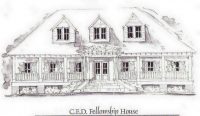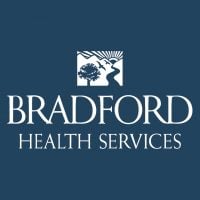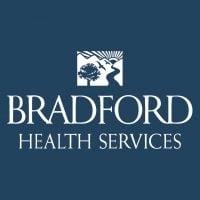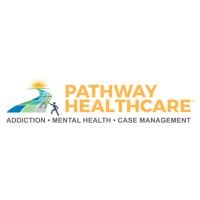
CED Fellowship House
Drug Rehab Center in Gadsden, Alabama
- Opioid Addiction
- Dual Diagnosis
- Drug Addiction
- Alcoholism
CED Fellowship House is a residential drug and alcohol rehabilitation center in Gadsden, Alabama that offers personalized treatment plans, including detox, relapse prevention, and aftercare, with a focus on holistic care and building community support.
About This Alabama Facility
CED Fellowship House is a 20 bed Addiction Treatment Facility located in Gadsden, AL. It specializes in treating those suffering from drug and alcohol addiction, opioid addiction, and dual diagnosis. To ensure that every individual patient gets the best quality of care they offer the following levels of care: Drug Rehab, Dual-Diagnosis, Inpatient, Sober-Living, and Residential. CED Fellowship House is staffed with certified counselors, therapists, and treatment professionals who have the skills, knowledge, and experience to provide a safe and secure environment to each patient and a full continuum of care.
At CED Fellowship House each patient’s addiction is treated holistically, addressing the physical, mental, and emotional components of addiction. They use a variety of evidence based methodologies such as Cognitive Behavioral Therapy (CBT), Dialectical Behavioral Therapy (DBT), Motivational Interviewing (MI), group and individual therapy sessions, and 12-Step integration to provide the best support possible. Additionally, CED Fellowship House is a certified member of the Alabama Department of Mental Health, and is fully licensed and accredited by the Joint Commission, CARF, and the Alabama Alcoholism and Drug Abuse Association, ensuring that you will receive the best care for your needs.
Genders
Ages
Modality
Additional
Conditions and Issues Treated
Opioid addiction treatment should be done in a medically supervised drug rehab. Opioid addiction treatment will include detoxification and drug rehab counseling to help both the user and their loved ones learn how to live a successful sober lifestyle. Methadone, buprenorphine, and naltrexone are three medications that can help treat opioid addiction. Individual drug rehab counseling sessions can be helpful to discuss any questions or concerns with the drug treatment program.
When addiction and psychiatric issues co-occur, the addict’s recovery is more successful when both conditions are treated. A dual diagnosis refers to a condition in which the patient is diagnosed with two health issues: addiction and bipolar disorder.
Usually, dual diagnosis sufferers are prescribed a combination of treatments for each condition. The most common therapies are psychotherapy, behavioral therapy, spiritual counseling, 12-step programs, and medication management.
Psychiatric conditions are an obstacle to recovery because they can create roadblocks to a healthy lifestyle. Drugs and alcohol may be used as a means of self-medication, which can have dangerous consequences. Over time, addicts build up a tolerance and suffer withdrawal symptoms when drug use is stopped.
With the proper treatment, dual diagnosis sufferers can overcome their conditions and achieve lasting sobriety.
Levels of Care Offered at CED Fellowship House
This center offers a variety of custom treatment tailored to individual recovery. Currently available are Drug Rehab, Dual-Diagnosis, Inpatient, Residential, Sober-Living / Half-Way, with additional therapies available as listed below.
Inpatient treatment is an option that provides addicts with a supportive environment in which they can stop using. This type of intensive care and supervision is appropriate for those who were unable to quit on their own or need more structure than they could get from outpatient treatment, such as the addict most in need of this level of care.
The goal of inpatient rehab is for the addict to stay focused on sobriety and remain free of mood altering substances. Inpatient treatment programs usually offer the following: detox, therapy groups, one-on-one counseling, medication management and aftercare planning.
Sober Living Homes are used in drug rehab to help former addicts maintain sobriety. The staff provides the residents with a safe and supportive living environment to learn how to live a sober life. The staff members also provide the residents with resources to equip themselves better to live a sober life. They also provide them with opportunities for exercise, many of which encourage learning coping mechanisms that will be helpful later on.
Residential treatment programs are those that offer housing and meals in addition to substance abuse treatment. Rehab facilities that offer residential treatment allow patients to focus solely on recovery, in an environment totally separate from their lives. Some rehab centers specialize in short-term residential treatment (a few days to a week or two), while others solely provide treatment on a long-term basis (several weeks to months). Some offer both, and tailor treatment to the patient’s individual requirements.
Therapies & Programs
Individual therapy is a critical component of addiction recovery. It allows the patients to go deep into their core issues and discover how to handle those problems better. Therapy can be conducted in individual sessions as well as group settings. In individual therapy for addiction, the patient meets with their therapist one-on-one to focus on the underlying issues. This allows patients to open up and discuss personal topics they may not feel comfortable discussing in a group setting. This type of therapy can help develop solutions specific to each patient, which helps speed up the recovery process.
Group therapy helps prevent addicts from feeling isolated or unique in their situation by offering a sense of comfort and fellowship. It also creates a forum for addicts to build their support systems and learn from each other. The group therapy sessions at CED Fellowship House occur in a group setting rather than one-on-one to create a safer, controlled environment where addicts feel comfortable.
Trauma therapy helps people dealing with addiction by allowing them to confront the traumas of their past and move past them. It is important to note that trauma therapy should not be confused with PTSD (post-traumatic stress disorder) Rather, it is used to treat the effects of trauma, which are often at the root of addiction.
Payment Options Accepted
For specific insurance or payment methods please contact us.
Additional Details
Specifics, location, and helpful extra information.
Gadsden, Alabama 35904 Phone Number(256) 413-3470 Meta DetailsUpdated November 25, 2023
Staff Verified
Patient Reviews
There are no reviews yet. Be the first one to write one.
Gadsden, Alabama Addiction Information
Opioids, such as heroin, fentanyl, and prescription opioids are related to more than half of all drug-related overdoses in Alabama. Alcohol is the most frequently used substance in Alabama; 85,000 Alabamians use cocaine every single year. In Alabama, there are four times as many vehicle crashes involving alcohol as there are normal vehicle crashes.
The drug addiction problem in Gadsden, Alabama, is relatively bad. About, 988 drug overdose deaths in the city in 2016. This equates to a rate of 10.8 deaths per 100,000 population. In Gadsden, Alabama, specifically, drug use has increased dramatically over the past decade. Drug treatment in Gadsden, AL, can be customized and largely depend on a person's unique needs.
Treatment in Nearby Cities
- Fayette, AL (103.1 mi.)
- Newton, AL (186.4 mi.)
- Bessemer, AL (65.3 mi.)
- Pelham, AL (65.0 mi.)
- Eight Mile, AL (254.0 mi.)
Centers near CED Fellowship House



The facility name, logo and brand are the property and registered trademarks of CED Fellowship House, and are being used for identification and informational purposes only. Use of these names, logos and brands shall not imply endorsement. RehabNow.org is not affiliated with or sponsored by CED Fellowship House.




